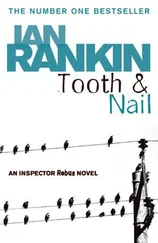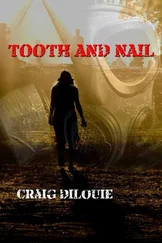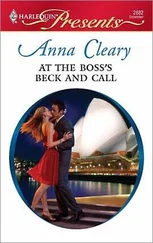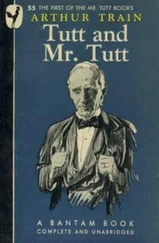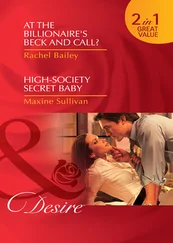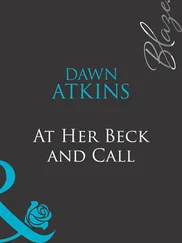AT PROVIDENCE FERRY
IT GOT WORSE.
Nathan’s silhouette presented itself to her at the top of a rise, unkempt now and dripping. Slowly, with the testudineous progress of something you might crush underfoot, she made her way up the hill to him, and when she got there he pointed down at the lashing dun waves of the Seekonk River and the distant figure of the ferryman. She didn’t say a word, but when they got there, when the water was beating to and fro and the ferryman accepting her coin, she held back. “The water looks doubtful,” she said, trying to keep her voice from deserting her.
“This?” Nathan looked puzzled. “I’d call this calm, Missus,” he said. “And the quicker we’re over it, the better, because there’s worse to come.”
She closed her eyes fast, drew in a single breath and held it till they were across and she knew she was alive still and climbing back into the saddle even as the rain quickened its pace and the road ahead turned to sludge.
PROVIDENCE FERRY TO THE HAVENSES’
THEY HADN’T GONE on a quarter of an hour when they came to a second river, the name of which she never did learn. It was dark as a brew with the runoff of the rain and ran in sheets over the submerged rocks and boiled up again round the visible ones. She felt herself seize at the sight of it, though Nathan assured her it wasn’t what it seemed—“No depth to it at all and we’re used to ride across it even at spring thaw”—and when they were there at the crossing and Nathan’s mount already hock-deep in the surge, she just couldn’t go on. He remonstrated with her — they were late on the road already, dusk was falling, there was another crossing after this one and fourteen miles more to the next stage — but she was adamant. There was no inducement in the world that would make her risk that torrent.
The rain had begun to let up now and a few late faltering streaks of sun shone through the clouds across the river. But wasn’t that a house there on the far shore? A cabin, crudely made of logs with the bark peeled back and smoke rising palely from the stacked stone of the chimney? The current sang. Nathan swung his horse round on the shingle and gave her a look of hatred. “Does someone live there?” she asked. “In that cabin there?”
He didn’t answer. Just thrust his horse into the current and floundered through it with a crashing like cymbals and she was so furious she would have shot him right through his pinched shoulder blades if only she’d had the means. He was deserting her. Leaving her to the wolves, the murderers and the haunts. “You come back here!” she shouted, but there were only his shoulders, receding.
That was her low point. She tried, at first, to screw up her courage and follow him — it wasn’t so deep, after all, she could see that — but the way the water seemed to speak and hiss and mock her was enough to warn her off. She dismounted. There was a chill in the air, her clothes wet still, the night descending. She should have stayed home. Should have listened to Robert and her daughter and everyone else she talked to — women simply did not travel the Post Road, not without their husbands or brothers or kinsmen there to guide and protect them, and even then, it was a risk. Something settled in the back of her throat, a hard bolus of self-pity and despair. She couldn’t swallow. One more minute of this, one more minute of this water and these trees, these endless trees, and she was going to break down and sob like a child. But then, out there on the naked back of the water, she saw the envelope of the birchbark canoe coming toward her and a boy in it and Nathan beckoning to her from the far shore.
What to say? That the crossing — eyes tight shut and her grip on the papery gunwales like the grip of death — was the single worst moment of her life, at least until the next crossing, through which they plunged in a pit of darkness so universal that it was only the tug of the reins, the murmur of the current and the sudden icy stab of the water at her calves to let her know she was in it and through it? Or that the fourteen miles remaining were so tedious she could scarcely stay awake and upright in the saddle despite the horripilating shivers that tossed her from one side to the other like a ball in a child’s game? Say it. And say that she thought she was dreaming when the Post sounded his horn and the snug, well-lit house of the Havenses materialized out of the night.
AT THE HAVENSES’
AS WEARY AS SHE WAS, as worn and dispirited, she couldn’t help feeling her soul rise up and shout when she stepped through the door. There was Mr. Havens, solicitous and stout, and Mrs. Havens beside him with a welcoming smile, the fire going hard in the hearth and a smell of beef broth to perfume the air. She saw immediately that these were people civil and clean, with a well-ordered house and every sign of a demanding mistress, a picture on one wall of the sitting room and a glass vase of dried flowers set atop an oiled sideboard on the other. Chairs were drawn up to the fire and a number of people cozily ensconced there with their mugs and pipes and they all had a greeting on their lips. Mrs. Havens helped her off with her riding clothes and hung them up to dry and then asked if she could get her anything by way of refreshment, Sarah answering that she had a portion of chocolate with her and wondered if she might have some milk heated in a pan. And then she was shown to her room — small but sufficient and tidy — and the door was shut and she felt as if she’d come through a storm and shipwreck and washed up safe.
She must have dozed, because she came back with a start when Mrs. Havens rapped at the door. “Yes?” Sarah called, and for a moment she didn’t know where she was.
A murmur from the other side of the door: “Your chocolate, Missus.”
The milk had been boiled with the chocolate in a clean brass kettle, and there was enough of it to give her three cups full. And there were corn cakes, still warm from the griddle. This was heaven, she was thinking, very heaven, dipping the cakes into the chocolate and warming her hands at the cup, but then the voices began to intrude. It seemed that her apartment, separated from the kitchen by a board partition, wasn’t quite as private as she’d supposed. Next door to her — just beyond that thin rumor of a wall — were three, or was it four, of the town’s topers, and all of them arguing a single point at once.
She listened, frozen on the starched white field of the bed, and she might as well have been right out there amongst them.
“No,” a voice declared, “that’s not it at all. Narragansett means ‘briar’ in the Indian language, and the patch of it was right out there on Peter Parker’s place, twenty feet high and more—”
“I beg to differ, but it was a spring here — and that’s where the country gets it name. Waters of a healing property, I’m told.”
“Yes? And where is it, then? Why aren’t you drinking the waters now — why aren’t we all?”
A scuffle of mugs, the scrape of chair legs. “But we are — only it’s been distilled out of cane.” Laughter rang out, there was a dull booming as fists pounded the tabletop, and then someone followed it up with a foul remark, in foul language.
And so it went, for what seemed like hours. Exhausted as she was, there was no hope of sleep as long as the rum held out, and she began to pray the keg would run dry, though she was a practical soul who’d never had the calling and she never expected her prayers to be answered since there were so many worthier than she calling on the same power at the same moment. But the voices next door grew thicker, as if they’d started chewing maple sap boiled to gum, and the argument settled into a faintly disputatious murmur and then finally a pure drugged intake and outlay of breath that formed the respiratory foundation of her dreams.
Читать дальше


